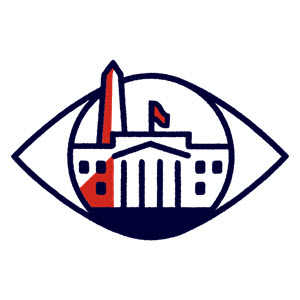H.R.1, the One Big Beautiful Bill Act – Impacts to Employee Benefits
Part of a series | The One Big Beautiful Bill Act Series

H.R. 1, The One Big Beautiful Bill Act, contains a number of changes to employee benefits.
As discussed in the recent Eye on Washington article on H.R. 1, The One Big Beautiful Bill Act (the Act) contains a number of changes to employee benefits. These changes include, for example, enhancement of the employer-provided childcare credit and the elimination of the bike commuter reimbursement program. In this article, we discuss other provisions of the Act impacting employee benefits.
Dependent Care Assistance Program limits raised to $7,500
For most of the last three decades, the maximum annual exclusion for dependent care assistance provided under a Dependent Care Assistance Program (DCAP) has been fixed at $5,000 (or $2,500 for separate returns filed by married individuals), with no adjustment for inflation. For Plan years beginning on or after 1/1/2026, the dependent care assistance exclusion increases (without future indexing) from $5,000 to $7,500 ($3,750 for married filing separate) for expenses paid or incurred under a qualified DCAP.
The Act did not increase the maximum dependent care tax credit (which remains at $3,000 for one child and $6,000 for two or more dependents), but it does increase the percentage of qualifying expenditures subject to the credit from 35 percent to 50 percent, in addition to a phaseout based on gross income. These changes may (1) affect the appeal of the DCAP benefits for employees based on their income, if the dependent care tax credit has a better financial impact than participation in a DCAP and (2) potentially create a higher percentage of high-wage earners participating in a DCAP, which could impact nondiscrimination testing under Internal Revenue Code Section 129.
Permanent extension of CARES Act tax-free student loan repayment assistance
The Coronavirus Aid, Relief, and Economic Security (CARES) Act of 2020 allowed tax-free reimbursement of qualifying student loan payments up to $5,250 on behalf of employees until December 31, 2025. This is an exclusion from income tax for employees, and from payroll taxes for both employees and employers. The Act makes this exclusion from taxes for employer-provided student loan payments permanent. For taxable years beginning after 2026, the $5,250 per-employee, per-year limit will be indexed for inflation.
Changes for health savings accounts
Qualified High Deductible Health Plan treatment for individual bronze or catastrophic exchange plans
Beginning January 1, 2026, bronze or catastrophic coverage offered in the individual market on an Exchange will be treated as a qualifying High Deductible Health Plan (HDHP). Therefore, individuals enrolled in an individual bronze or catastrophic plan will be considered HSA-eligible.
Permanent HSA safe harbor for telehealth services
The CARES Act also created an exception which allowed HDHPs to cover telehealth services on a first-dollar basis (pre-deductible). The CARES Act safe harbor expired for plan years beginning on or after January 1, 2025.
The Act makes permanent, and retroactively applies, the safe harbor for 2025 plan years, allowing HDHPs to cover telehealth and other remote care services with no deductible and without disqualifying individuals from contributing to an HSA.
Expanded HSA eligibility for direct primary care arrangements
Generally speaking, a direct primary care arrangement (DPA) is an alternative to fee-for-service insurance billing. Patients pay a fixed monthly or other periodic fee that permits them unlimited access to certain primary care services without the need to pay additional fees at the time of service. These arrangements were historically considered incompatible with HDHPs and disqualifying coverage for HSAs.
Beginning in 2026, participation in a DPA will no longer disqualify individuals from contributing to an HSA, as long as the DPA fees do not exceed $150 per month for an individual or $300 for a family (both amounts to be adjusted annually). To remain HSA compatible, covered services under the DPA cannot include procedures that require anesthesia, prescription drugs (other than vaccines), and certain laboratory services. The Act also makes certain DPA fees reimbursable through an HSA.
Learn more
For more information, review our guide, which includes related articles and an on-demand webinar covering the key provisions of the Act.
ADP compliance resources
ADP maintains a staff of dedicated professionals who carefully monitor federal and state legislative and regulatory measures affecting employment-related human resource, payroll, tax and benefits administration, and help ensure that ADP systems are updated as relevant laws evolve. For the latest on how federal and state tax law changes may impact your business, visit the ADP Eye on Washington Web page located at www.adp.com/regulatorynews.
ADP is committed to assisting businesses with increased compliance requirements resulting from rapidly evolving legislation. Our goal is to help minimize your administrative burden across the entire spectrum of employment-related payroll, tax, HR and benefits, so that you can focus on running your business. This information is provided as a courtesy to assist in your understanding of the impact of certain regulatory requirements and should not be construed as tax or legal advice. Such information is by nature subject to revision and may not be the most current information available. ADP encourages readers to consult with appropriate legal and/or tax advisors. Please be advised that calls to and from ADP may be monitored or recorded.
If you have any questions regarding our services, call 855-466-0790.
ADP, Inc.
One ADP Boulevard, Roseland, NJ 07068
adp.com
Updated on August 8, 2025



